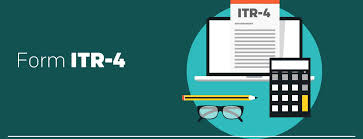Go to Product
Income Tax Return (ITR)
Income Tax Return (ITR) is a form which a person is supposed to submit to the Income Tax Department of India. It contains information about the person’s income and the taxes to be paid on it during the year. Information filed in ITR should pertain to a particular financial year, i.e. starting on 1st April and ending on 31st March of the next year.
Income can be of various forms such as:
- Income from salary
- Profits and gains from business and profession
- Income from house property
- Income from capital gains
- Income from other sources such as dividend, interest on deposits, royalty income, winning on lottery, etc.
An income tax return form is a document that is filed with the tax authorities. It comprises your earnings, expenditures, and other tax-related details. Income tax returns (ITRs) simplify you to determine your tax liability, pay your taxes, and claim refunds in case you have paid excess tax. There are different types of ITR forms and it is important to know that you need which form to file ITR. The form depends on your income and in certain instances, whether you hold assets in other foreign countries or have international earnings.
Here are the various types of forms:
ITR Form 1
This type of ITR form is also known as ‘Sahaj’. It is filed if you are an individual taxpayer. It is applicable if you:
- Earn income through salary or pension
- Earn income from one housing property
- Do not earn capital gains
- Do not hold a property abroad
- Earn only domestic income
- Earn agriculture income less than INR 5,000
- Earn income through investments such as fixed deposits
- Do not earn any windfall income through horse racing or lotteries
ITR Form 2
This type of ITR form is filed if you have earned an income by selling a property or other assets. Moreover, if you earn international income, you need to file ITR 2. The form is also used for Hindu Undivided Family (HUF) taxpayers.
ITR Form 3
ITR 3 applies to an individual as well as HUF taxpayers. If you earn income under the gains or profits from profession or business category, you may use this form to file your ITR.
ITR Form 4
ITR 4 is used by individuals, HUFs, or partnership firms whose income includes the following:
- Business earnings as per provisions of section 44AD and 44AE
- Professional income under special provisions of section 44ADA
- Pension or salary
- Earnings from a single house property except where loss is carried forward
- Income from other sources excluding lottery or horse race winnings
ITR Form 5
Firms, local authorities, artificial judicial persons, Body of Individuals (BOIs),Co-operative Societies, Limited Liability Partnerships (LLPs), and Association of Persons (AOPs) use ITR 5 to file returns.
ITR Form 6
Every company, except those that claim exemptions under Section 11 of the Income Tax Act, 1961 needs to file returns using Form ITR 6. Organizations that receive income from property used for religious or charitable purposes are eligible to claim exemptions under section 11. ITR 6 must be filed online.
ITR Form 7
Individuals or companies as described below must file returns using Form ITR 7:
- Section 139(4A): Individuals earning income from property held for religious or charitable purpose as a trust
- Section 139(4B): Political parties whose income exceeds non-taxable limits
- Section 139(4C): An institution or association under section 10(23A), medical or educational institution, scientific research association, news agency, an institution under section 10(23B)
- Section 139(4D): Institutions, such as universities or colleges whose income returns or losses are not needed as per the provision of this section must file returns using Form ITR 7.
- Section 139(4E):Must be filed by every business trust that is not required to provide a return of income or loss under other provisions of this section
- Section 139(4F): Investment funds as per section 115UB must file returns under this section
Applicability of the form will depend on the nature and amount of income and the type of taxpayer.
What are the Advantages of filing Income tax return?
1. Prompt processing
The acknowledgment of Income Tax Return (ITR) is quick. More importantly, refunds, if any, are processed faster than paper-filed returns.
2. Better accuracy
E-filing software with built-in validations and electronic connectivity is seamless and minimizes errors considerably. Paper-filings can be prone to errors. Also, when any paper-based form is migrated to the electronic system, there is a possibility of human error in data entry.
3. Convenience
No time and place constraint in filing returns online. E-filing facility is available 24/7 and you can file anytime, anywhere at your convenience.
4. Confidentiality
Better security than paper filings since your data is not accessible to anyone either by design or by chance. With paper filings details of your income can fall in the wrong hands at your chartered accountant’s office or in the Income Tax Department’s office.
5. Accessibility to past data
You can easily access past data while filing returns. Most e-filing applications store data in a secure manner and allow for easy access at the time of filing subsequent returns.
6. Proof of receipt
You get prompt confirmation of filing, both at time of filing and subsequently, via email on your registered email id
7. Ease of use
E-filing is friendly and the detailed instructions make it easy even for individuals not very conversant with the internet
8. Electronic banking
Convenience of direct deposit for refund and direct debit for tax payments. You have the option to file now, pay later - decide what day to debit your bank account for tax payment, among other convenience features.
INCOME TAX RETURN DOCUMENT LIST:-
- AADHAR CARD
- PAN CARD
- FORM-16
- INTEREST CERTIFICATE FOR FDR ETC (IF ANY)
- INTEREST CERTIFICATE FOR HOUSING LOAN (IF ANY)
- MOBILE NO.
- EMAIL- ID
- BANK STATEMENT FOR THE FINANCIAL YEAR 01.04.2019 TO 31.03.2020
- BANK DETAIL- A/C NO. IFSC CODE & BANK NAME
- SAVING ETC LIKE LIC, TUTION FEES ETC
- HEALTH INSURANCE (IF ANY)




